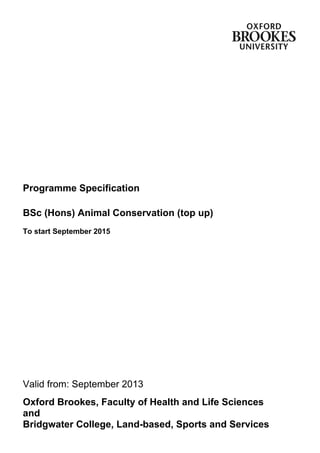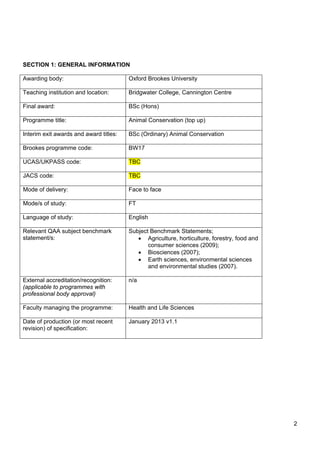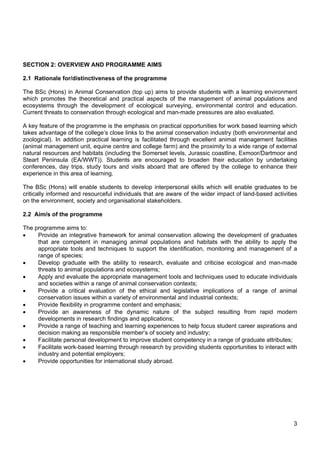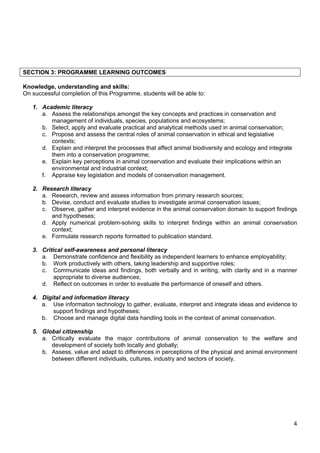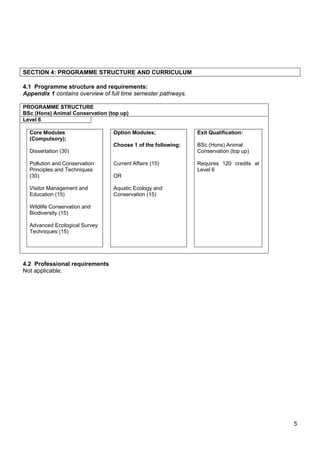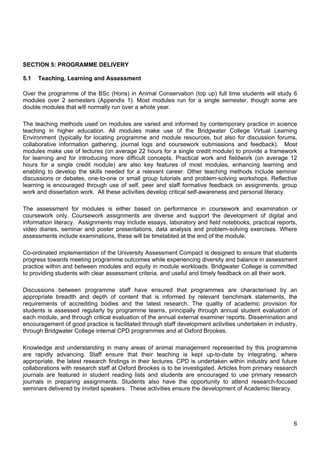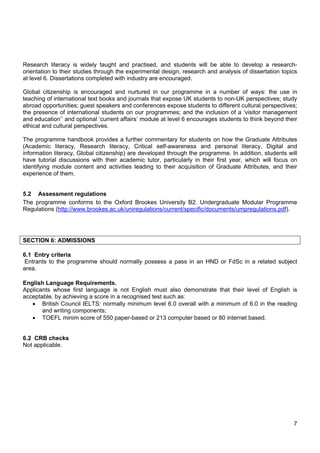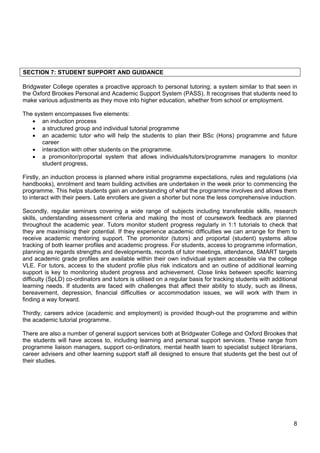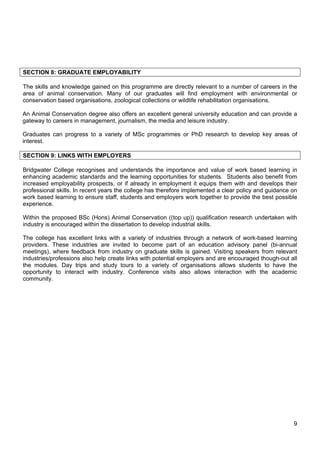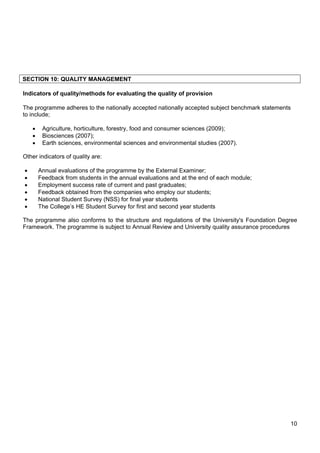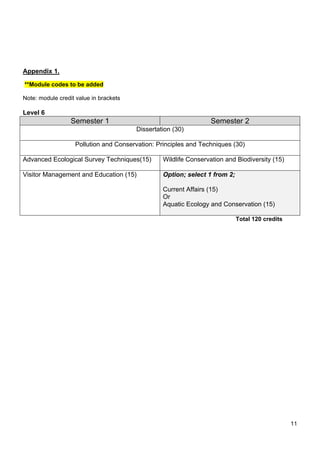This document provides information on the BSc (Hons) Animal Conservation (top up) degree program to be offered starting in September 2015 by Oxford Brookes University and Bridgwater College. The one-year program aims to provide both theoretical and practical training in managing animal populations and ecosystems, as well as evaluating threats to conservation. Students will take a combination of core and elective modules focusing on subjects like pollution and conservation techniques, wildlife biodiversity, and ecological surveying. Teaching methods include lectures, practical fieldwork, seminars and tutorials. Assessment is through coursework, exams, and a dissertation. The program is designed to develop skills needed for careers in animal conservation.
